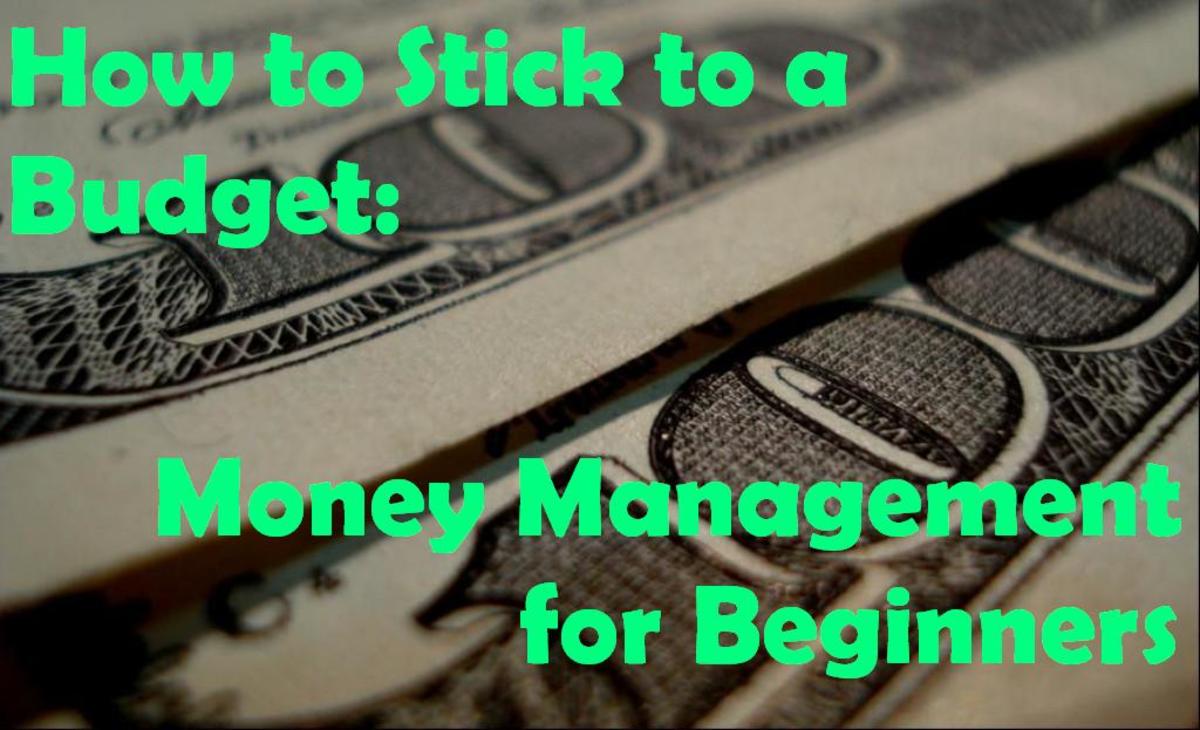How Much Will I Need to Retire (Part 4 of 5)
Save Money for Retirement
How much will I need to retire (part 4 0f 5)
In the first 3 parts of this series I explained that you most likely will need the same amount of income after you retire as you need prior to retirement. I decided to use an example using a net income of $50,000 per year. I discovered that in order to live on $50,000 per year for the rest of your life, you would need to have $1.05 million invested when you retire.
I then suggested that you should get out of debt and stay out of debt. The best way to do this was to get on a budget. In part 3 I developed a budget for a family of 4. The husband and wife were each 31 years old. They had 2 kids aged 8 and 10. They also had no savings or no investments. They had 4 credit cards with balances of $500, $1,000, $1,500 and $2,000. The minimum payment on each card was $50 per month. They owned 2 cars and owed $5,000 and $10,000 on the cars. The monthly payments on those cars were $300. They also had a $15,000 Home Equity Loan that had a monthly payment of $100. After doing their budget they had $250 per month left over. The husband decided to deliver newspapers before he went to work each morning. He was netting $300 per month doing this. That means this couple had an extra $550 each month after their budget was finished.
Before we look and see what this couple did with the extra $550 per month they had, I have to inform you that this article is heavily influenced by Dave Ramsey's Financial Peace University. I highly encourage anyone, no matter what your financial status is, to go through Dave Ramsey's Financial Peace University. Please check out www.daveramsey.com for details.
Getting Out of Debt
This couple wanted to build a small emergency fund of somewhere between $1,000-$2,500. They had a rummage sale and made $100 and combined that with the extra $550 and after 1 month they had $650 in their emergency fund. The second month they applied their $550 to their emergency fund so they now have $1,200 in their emergency fund. They decide that is enough so they begin in their 3rd month to pay off their debt.
They took the $550 dollars left over and added that to the $50 that they had budgeted to pay on the $500 credit card. That means they paid off the credit card and have $100 which they apply to their emergency fund. They are now 3 months into their program and they have $1,300 in an emergency fund and have paid off a credit card.
In the 4th month they take the $50 that they had budgeted to the 1st credit card and add it to the 2nd credit card. They now have $100 per month budgeted to their 2nd credit card. They take that $100 plus the $550 they have left at the end of the month and apply that to the second credit card. The balance on the second credit card was $1,000 since they are applying $650, the balance is now $350.
In the 5th month they have $650 to apply to the second credit card, but the balance is only $350. That means they have $300 left over along with the $50 they had budgeted to their 3rd credit card to apply to that. The 3rd credit card had a balance of $1,500 and they applied $350 to it so the new balance is $1,150.
In the 6th month they take the $100 they had budgeted to the second credit card and add that to the $50 that they were paying on the 3rd credit card. They now have $150 per month budgeted for the 3rd credit card. They add the $550 extra at the end of the month to the $150 so they are throwing $700 per month at the 3rd credit card.
They continue with this system until all of their debt is paid except for their house. In my calculations, after 21 months they will have paid off all credit cards and 1 car. The husband then decides to quit delivering newspapers. He worked the extra job for LESS than 2 years. They now have $200 worth of credit card payments plus $300 of car payments they are now putting towards their 2nd car. Add that to the $250 extra that they have in their budget each month plus the $300 payment of the 2nd car means they are now paying $1,050 each month on the 2nd car,
By my calculations this couple will have all of their debt paid off except their house in 36 months!
In the final article of this series we will see what they do from here and find out if they reach their goal of $50,000 per year in retirement income.
- How much will I need to retire (part 1)
As you plan for retirement, the first question you should ask is "how much money will I need each year to live off of?" When you go to a financial planner, the standard response is 80% of your current... - How much will I need to retire (part 5...the results)
In the first 4 parts of this series I explained why you should have at least as much income after you retire as you need prior to retirement. I set an example of a net income of $50,000 per year. It was...
This article is accurate and true to the best of the author’s knowledge. Content is for informational or entertainment purposes only and does not substitute for personal counsel or professional advice in business, financial, legal, or technical matters.
© 2009 Art West









